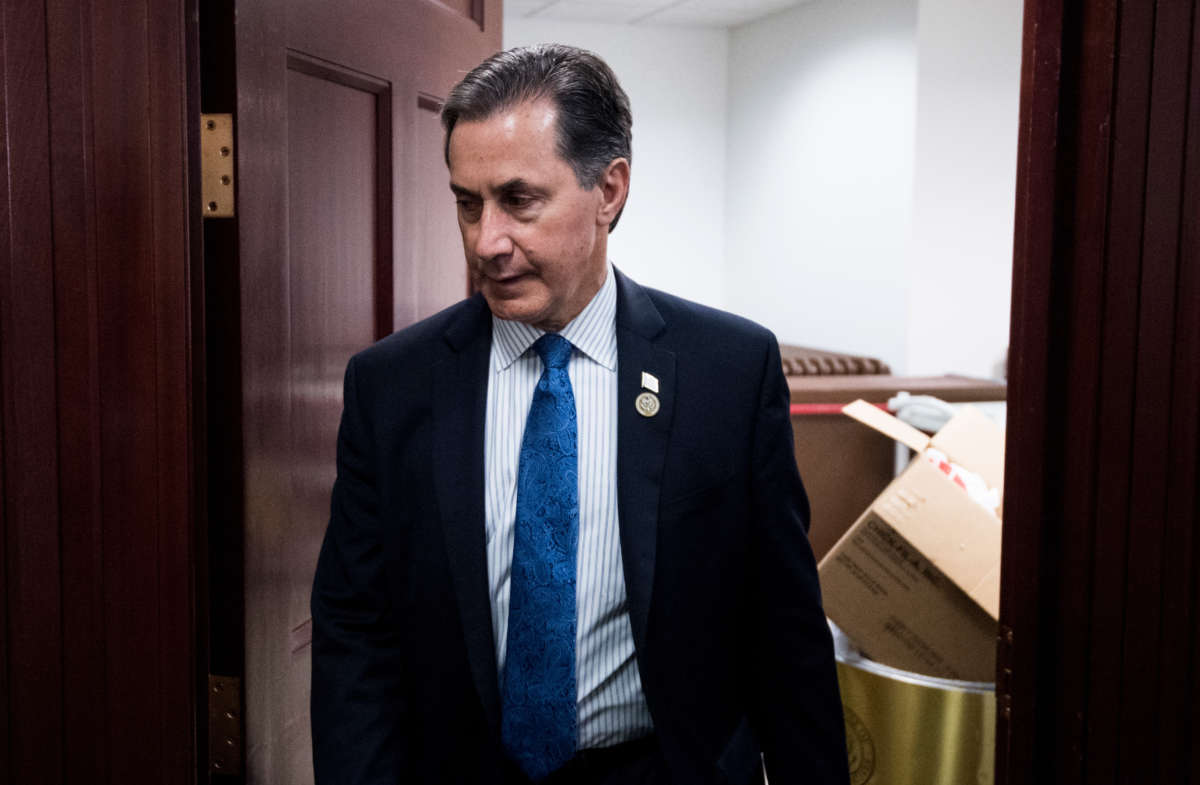This week, Alabama Republican Rep. Gary Palmer had touted funding from the bipartisan infrastructure bill that recently passed the House and was signed into law. He bragged about funding for a project in Alabama that would partly encircle Birmingham and “[build] a better future for the Birmingham metro area,” he said in a statement.
But Palmer voted against the infrastructure bill, despite calling getting funding for the project “one of my top priorities.”
Indeed, Palmer joined the 200 other Republicans who voted against the bill in the House earlier this month despite having cosponsored a proposal to finish the Northern Beltline, which has been criticized by Indigenous and environmental groups for plans to raze forests and potentially pollute and destroy vital tribal waterways.
Democrats like Sen. Brian Schatz (D-Hawaii) and Rep. Eric Swalwell (D-California) pointed out Palmer’s hypocrisy. In response to a tweet from Palmer promoting the funding, Swalwell said, “You mean the funding you voted against? That funding?”
A spokesperson for Palmer responded by saying that, if the funding for the project had been brought as a separate bill, he would have voted for it. As it was, “the bill was full of problems,” the spokesperson said.
The funding for the Alabama project, however, has been framed by media and lawmakers as a win for the state within the relatively small bill. The infrastructure bill allocates $550 billion in new spending for 11 Appalachian states. Alabama and West Virginia will claim about half of that, reports E&E News, with most of the $369 million for Alabama going toward the beltline.
For a highway project that’s reliant solely on funding from the federal government’s Appalachian Development Highway System, it would seem that voting for the funding would be a priority for Palmer. But, even if Palmer wanted to vote for the bill, he may have feared stepping away from the party or appearing to support a bill originally proposed by President Joe Biden, standing apart from the vast majority of the rest of the GOP.
Indeed, the 13 House Republicans who voted for the bill have faced ridicule from other GOP members. Rep. Fred Upton (R-Michigan) said that he received several death threats over his vote after extremist Rep. Marjorie Taylor Greene (R-Georgia) posted his office number on Twitter, referring to the Republicans who voted for the bill as “traitors.” One voicemail was particularly violent and vitriolic, and threatened the lives of Upton, his family and his staff, according to a recording of the message.
The GOP has also been considering formal punishments for members who voted for the bill, including stripping them from their committee assignments.
Palmer’s brag isn’t the first time that Republicans have taken credit for provisions bills that they’ve ultimately voted against. Many Republicans, including House Minority Leader Kevin McCarthy (R-California), touted provisions of the stimulus package passed in March, including popular provisions such as funds for struggling restaurants. But every single Republican in Congress voted against the bill, which has helped to push poverty levels to record lows in the country.
Our most important fundraising appeal of the year
December is the most critical time of year for Truthout, because our nonprofit news is funded almost entirely by individual donations from readers like you. So before you navigate away, we ask that you take just a second to support Truthout with a tax-deductible donation.
This year is a little different. We are up against a far-reaching, wide-scale attack on press freedom coming from the Trump administration. 2025 was a year of frightening censorship, news industry corporate consolidation, and worsening financial conditions for progressive nonprofits across the board.
We can only resist Trump’s agenda by cultivating a strong base of support. The right-wing mediasphere is funded comfortably by billionaire owners and venture capitalist philanthropists. At Truthout, we have you.
We’ve set an ambitious target for our year-end campaign — a goal of $250,000 to keep up our fight against authoritarianism in 2026. Please take a meaningful action in this fight: make a one-time or monthly donation to Truthout before December 31. If you have the means, please dig deep.
